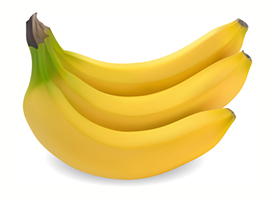 Salt’s a bad guy, salt’s a good guy…and so the dance continues. For many decades, salt is the first thing on the chopping block for people with high blood pressure.
Salt’s a bad guy, salt’s a good guy…and so the dance continues. For many decades, salt is the first thing on the chopping block for people with high blood pressure.
But is it really an overload of salt that’s to blame?
No, says research out of South Africa, where the incidence of hypertension is almost off the charts. It’s rather lacking another important mineral that balances salt.
For decades, the World Health Organization has stuck by its recommendation that humans consume no more than 4 to 6 grams of salt daily.
However, in a country as densely populated as South Africa, where the mean salt intake is only 7 grams and hypertension cases are still abundant, it looks like the amount of salt consumed may not be the actual problem.
In 2011, JAMA rocked the foundation of all things hypertension when a study it published seemingly lambasted the assault on salt. In the study, researchers found overwhelming evidence that death from stroke and heart attack was far more likely to occur when there is too little salt in the diet than when there is too much.
How can this be? It all has to do with a person’s sensitivity to sodium, which depends highly upon the other side of the see-saw: potassium.
The sodium-potassium relationship has been known for many decades, but the fact that most people are potassium-deficient has only been focused on recently in light of the not-enough-salt controversy.
Potassium is the only mineral that balances sodium in the body. Not having enough potassium causes the sodium sensitivity we talked about above. It can result in high blood pressure, Alzheimer’s disease, and other conditions- even type 2 diabetes.
Sodium overload is everywhere. It’s in all the packaged food we eat, carbonated beverages, and virtually all processed food that doesn’t come straight from the garden.
But even “healthy” amounts of sodium from salt can cause some people to have high blood pressure if potassium deficiency is present. There’s no counterweight for sodium when this happens.
However, too much potassium can be a problem, too. Before slashing your salt intake and putting yourself at the greater risk as described in the JAMA study referenced earlier, talk to the doctor about first supplementing with potassium at a safe dose and see if the balance can be struck by adding nutrients instead of cutting them.
Now, salt-potassium balancing can be complicated. A much simpler and easier way to lower blood pressure is the use of three easy exercises.

 Overcoming IBD
Overcoming IBD Multiple Sclerosis
Multiple Sclerosis Banishing Bronchitis
Banishing Bronchitis Gum Disease Gone
Gum Disease Gone Overcoming Onychomycosis
Overcoming Onychomycosis Neuropathy No More
Neuropathy No More The Prostate Protocol
The Prostate Protocol Brain Booster
Brain Booster
 Ironbound
Ironbound
 Solution for Shingles
Solution for Shingles
 The Bone Density Solution
The Bone Density Solution
 The Ultimate Healing Protocol
The Ultimate Healing Protocol
 The Parkinson's Protocol
The Parkinson's Protocol
 The Chronic Kidney Disease Solution
The Chronic Kidney Disease Solution
 Overthrowing Anxiety
Overthrowing Anxiety The Fatty Liver Solution
The Fatty Liver Solution The Hypothyroidism Solution
The Hypothyroidism Solution
 The End of Gout
The End of Gout The Blood Pressure Program
The Blood Pressure Program
 The Oxigized Cholesterol Strategy
The Oxigized Cholesterol Strategy
 Stop Snoring And Sleep Apnea Program
Stop Snoring And Sleep Apnea Program
 The Arthritis Strategy
The Arthritis Strategy The Vertigo & Dizziness Program
The Vertigo & Dizziness Program The 3-Step Diabetes Strategy
The 3-Step Diabetes Strategy Hemorrhoids Healing Protocol
Hemorrhoids Healing Protocol The Erectile Dysfunction Master
The Erectile Dysfunction Master Weight Loss Breeze
Weight Loss Breeze The IBS Program
The IBS Program The Insomnia Program
The Insomnia Program The Migraine and Headache Program
The Migraine and Headache Program The Neck Pain Solution
The Neck Pain Solution The Menopause Solution
The Menopause Solution The Ejaculation Master
The Ejaculation Master The TMJ Solution
The TMJ Solution The Acid Reflux Solution
The Acid Reflux Solution The Fibromyalgia Solution
The Fibromyalgia Solution The Psoriasis Strategy
The Psoriasis Strategy
One possible way, among others, to redress any potassium deficiency is to use low sodium salt in place of normal table salt, especially in cooking.
For those who are unaware, low sodium salt is 66% Potassium Chloride, 33% Sodium Chloride with approximately 1% Magnesium Carbonate (as an anti-caking agent) and is available in many supermarkets, well, in the UK anyway.
The present article on high blood pressure, including clarification concerning the Sodium/Potassium relationship,and related research concerning sodium salt, and its only balancing factor being Potassium, is very interesting. It will be helpful with my own high blood pressure condition. It seems that my own medical doctor, is quite ignorant, or unaware of that situation.
Better ways to control High BLOOD Pressure.
Your doctor may not be ignorant and chooses not to want to tell you because the doctor will not make any money on you if your problem get solved without medicine.
Thanks for this great ARTICLE, this is what I wanted to know about the remedy for high blood pressure. I would like to share this, in fact I am an affiliate of your ebooks in clickbank. To the author, Thank you very much!